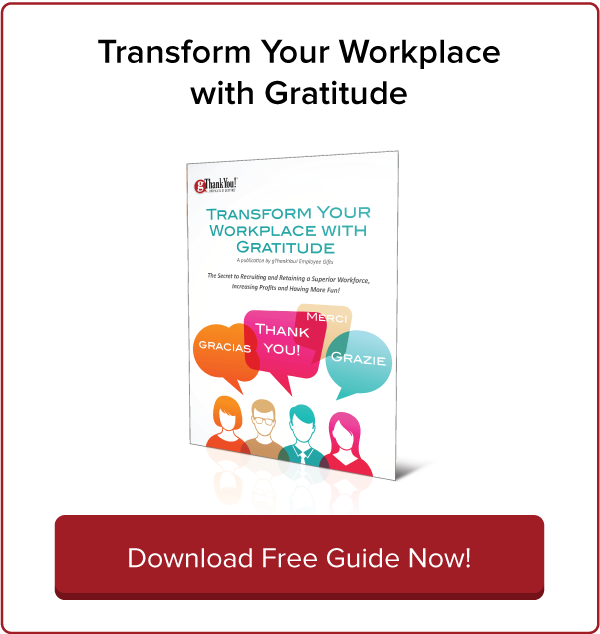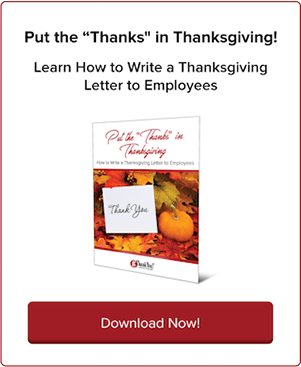Developing Workplace Gratitude, Culture, and Well-being
Immerse yourself in a wealth of insightful articles designed to nurture workplace gratitude, enhance employee well-being, and foster a thriving workplace culture. This category presents innovative strategies and practical tips that will bolster employee engagement, encourage team building, and boost overall productivity.
Cultivating Connection and Positivity in the Workplace
Discover the transformative power of regular check-ins and small gestures of appreciation in strengthening workplace relationships. Explore how incorporating elements of happiness, like pet-friendly policies or the surprise delight of cat videos, can enhance employee well-being and inject joy into your daily work environment. Additionally, understand the role of nutrition in promoting both individual and collective happiness in the workplace.
Harnessing Gratitude and Celebrating Values
Uncover the profound effects of practicing gratitude in the workplace, from expressing heartfelt thanks to planning appreciation events. Get inspired by thought-provoking TED Talks that reveal how gratitude can rewire the brain, foster positive relationships, and increase happiness. Moreover, learn the importance of celebrating teams and organizational values to underscore that your business is about people and values, not just work and the bottom line.
Navigating New Ways of Working
With the evolving work landscape, learn how to adapt to new ways of working and retain top talent, particularly in remote and hybrid environments. Appreciate the significance of random acts of kindness and gratitude in creating a supportive workplace atmosphere. Furthermore, understand the critical role of mental health and well-being, especially in the current mental health crisis.
Reboarding with a Focus on Gratitude and Well-being
As you reboard employees, seize the opportunity to reinvigorate your workplace culture with a focus on gratitude. Find out how to make employee appreciation a central pillar in your workplace, fostering a positive and engaging culture as you navigate the new normal.
Embark on the exciting journey of cultivating a vibrant and grateful workplace, where every employee feels valued and motivated. Happy reading!
-
11 Positive Workplace Quotes for Inspired Employees
Read Full PostGratitude quotes, gratitude notes, gratitude goats? Sure, we’ll take ’em all! Is the concept of sharing gratitude regularly embraced in your organization? Sometimes it just takes a moment to remember how much a statement or action of gratitude can make an incredible difference in someone’s day — and overall experience in the workplace. At gThankYou, we are proponents of finding everyday ways to express appreciation.
We’ve gathered up 11 positive workplace quotes that may serve as a timely reminder to share thanks with those around you. Let these positive workplace quotes help inspire an everyday culture of workplace gratitude among your leaders, teams, volunteers, partners, and other stakeholders.
(more…)Turn “Sorry” into “Thank You”
Read Full Post
Sorry. It’s one small word that may be holding your team back from building a stronger culture of workplace gratitude. Apologies have their place, but people often say “sorry” when “thank you” would be better. How often do you find yourself apologizing when it’s possible to be reworded into a more positive message?Think of it this way… If you had to choose to be surrounded by an abundance of genuine “thank you” messages among colleagues or a lot of people saying, “sorry” all the time, what would you prefer? (We think we know the answer.) However, it takes a little bit of awareness and effort to rewire our tendencies.
How to Thank Our First Responders
Read Full PostFirst responders serve on the front lines, heroically risking their own safety and wellbeing. While they received the spotlight throughout the pandemic (and they deserved it), it’s important to keep these hard workers feeling honored, respected, and cared for. High stress and trauma are part of their reality, so handwritten thank you notes (and food gift certificates) are a wonderful way to say, “Our community is grateful!”
What’s Trending? Welcome Gifts for New Hires
Read Full PostRoll out the red carpet! Welcome gifts for new hires are trending as a way to help employees feel appreciated from day one.
First days can be challenging, even for the most seasoned professionals. People don’t yet have their footing yet, don’t know all the jargon, the processes, the overall vibe. The most successful managers see onboarding as an opportunity, not just a checklist.
Welcome gifts — accompanied by a nice introduction letter — are a great way to kick off effective onboarding and making a good first impression. You want to send the message right away, so each employee feels welcome, needed, and appreciated.
Keep Remote Workers Happy with these 5 Solutions
Read Full PostAs the workplace continues to change into remote and hybrid models, defining ways to keep remote workers happy and engaged is of utmost importance. Remote working isn’t new to the world of work, but for many industries and people, it’s a new endeavor.
According to WFH Research, here’s a breakdown of the workforce according to work arrangements: In-person: 61%; Remote: 12%; and Hybrid: 26%. While the majority of workers still work primarily from a physical office, a significant portion now benefit from some level of remote work flexibility.
As passionate champions of happy, productive workplaces, we’ve gathered some suggestions for embracing remote workers to keep the engine running on all cylinders. (more…)
Why and How to Start Building a Healthy Workplace
Read Full PostEmployee Health and Fitness Day is Coming Up!
Held annually on the third Wednesday of May, Employee Health and Fitness Day is an excellent opportunity to show support for all things wellness. Why? Because employee health should be prioritized year-round, and this is a great day to share that commitment with employees. Read on for why you want to create and maintain a healthy workplace and ideas for how to celebrate.
What You Can Do to Build Employee Happiness Today
Read Full PostInternational Day of Happiness is March 20. How happy are your employees?
Employee happiness is the natural result of a recognition-rich culture that engages everyone. The biggest mistake that leaders can make is to assume that happiness happens naturally in the workplace. It’s important to be proactive, ask questions, and consistently assess levels of engagement. We’re not afraid to boldly state that employee engagement equals happiness… and if it doesn’t, there are some other systemic issues at play that may need to be explored.
(more…)Begin the Year Strong with Gratitude
Read Full PostAs the new year kicks off, it’s a wonderful opportunity to assess what employees achieved and overcame during 2023. Organizations everywhere have worked hard to reassess priorities and make significant changes after the pandemic-related pandemonium.
At gThankYou, we are advocates for weaving gratitude through the entire year. Stay tuned for our 2024 calendar, which provides a variety of ways to illustrate appreciation every month of the year. In the meantime, let’s take this opportunity to start the year on a high note. Here are some applicable tips to help foster a sense of appreciation in the next few weeks.
Gifts for Onboarding New Staff
Read Full PostGiving small, thoughtful gifts to a new employee is a great way to show them that you’re excited to have them on board. It can also help them feel more welcome and connected to the company culture. Onboarding gifts for new hires are always a friendly way to extend your kindness to someone who is entering into unfamiliar territory.
When choosing a gift for a new employee, it’s important to consider what you know about their interests and personality. You also want to make sure that the gift is something that they will actually use.
(more…)Back to School: Appreciate Your Friendly Custodian
Read Full PostAs we head back to school, it’s a good time to take a moment to appreciate the hard work of custodial staff who keep our schools clean and safe. These essential workers often go unnoticed, but their contributions are vital to the success of our schools.
National Custodian Day is officially October 2, but why wait?
Kick off the school year with an abundance of gratitude for those who helped clean up and get our schools ready for staff and students. Hang a giant custodian thank you card and hang it up for everyone to sign and set the tone for everyone who enters the building.
(more…)15 Quotes for a Workplace Culture of Gratitude
Read Full PostMotivational posters may be a little outdated, but sharing positivity in the workplace never gets old. Whether it’s simply sharing a quote to conclude a meeting or a classy sign in a conference room, there are many famous — and not so famous — quotes that can impact how employees feel about the culture of an organization. We’ve pulled together 15 quotes for a workplace culture of gratitude that may inspire or encourage you and your teams.
The most important application is for leaders to model an attitude of gratitude, taking the time and effort to thank and acknowledge what deserves praise. Flippant usage of “thanks” isn’t the goal … it’s providing a positive space to allow people to acknowledge and support each other.
(more…)Excellent TED Talks on Building Workplace Gratitude
Read Full Post
Building a culture of workplace gratitude could be the best thing you ever do for your business. In fact, author and speaker Toni Powell calls gratitude at work the key to success in “Why Gratitude in the Workplace?”“Gratitude has the rather extraordinary power to change just about every aspect of life—in very surprising ways.”
When you practice workplace gratitude, you transform relationships, minimize complaints, and see satisfaction levels skyrocket. The effect is profound and long-lasting, Powell says, because gratitude rewires the brain to see and process the world differently.
Gratitude:
- Increases resilience.
- Reduces stress.
- Facilitates positive relationships.
- Makes people happier.
(more…)
The Importance of Checking In
Read Full PostIn today’s fast-paced workplace, it can be easy to get caught up in the day-to-day. So, how often do you take a moment to check in on colleagues and employees? Taking the time to check in with people can have a number of benefits for both individuals and organizations. The power of a text, brief email or even a quick phone call can make a tremendous difference.
Research Supports the Power of Checking In
There was an article in the New York Times, “Text Your Friends. It Matters More Than You Think.” It outlines research that states that “most of us underestimate the power of the casual check-in” and it got us thinking. We are firm advocates for small gestures – a thank you note, a social media shout-out, a favorite snack. A check-in can be a simple but powerful move.
(more…)Manifest Happiness at Work
Read Full PostManifest Happiness at Work
How does happiness manifest at work and what can business leaders do to increase it? Cat videos. You think we’re joking, but we may not be! Infusing happiness into the workplace IS your job — and it matters. What are you doing to bring joy to employees?
In a recent video with Katie Couric and Dr. Laurie Santos, professor of psychology at Yale University and host of “The Happiness Lab” podcast, they discuss “how wellness influences consumer behavior, how it can be prioritized in the workplace, and why it matters to businesses and brands.”
(more…)Pets in the Workplace: Work Perk?
Read Full PostIt has become increasingly common to allow pets in the workplace, given the right environment and permission. Dogs, especially, can lighten the mood, relieve stress and offer a friendly face. In most cases, a cat will decline the invitation, but there are exceptions. However, a pet-friendly environment shouldn’t serve as an employer branding ploy – the policies need to be thoughtfully considered and respectful to everyone.
Should pets be allowed in the workplace? Some Pros and Cons.
Pros: (more…)
The Connection Between Happiness and Nutrition
Read Full PostA great workplace starts with healthy employees. Plus, there is a strong connection between happiness and nutrition. Why not make work a healthier, happier place to be, one step at a time? We’re here to help.
Many organizations have committed to a healthy workplace, and wellness programs continue to flourish in businesses of all sizes. However, even with strides in tech-based wellness initiatives and other fancy programs, nutrition is a fundamental piece of wellness. Don’t leave nutrition-based education to personal trainers, dieticians and nutritionists. A healthy lifestyle can start at home AND at work. (more…)
March: Time to Build Workplace Happiness!
Read Full PostGet out your calendar and start scheduling some fun – and happiness will follow! March is the ideal time to build workplace happiness. Winter is dragging on and, for many of us, spring still seems a long way off. Luckily you still have opportunities to share workplace appreciation and inspire some easy fun this month.Don’t forget St. Patrick’s Day on March 17! It’s always a fun occasion to wear green and have a little office fun. But the MOST important day of the month is …… March 20!
(more…)Finish the Year Strong with Gratitude
Read Full PostIt’s not too late to finish the year strong with gratitude!
Year-end can mean different things to people, depending on industry, role, personality type … and a million other factors! We hope you are thoroughly enjoying the holiday season with your friends, family and employees. Here are a few suggestions to finish the year strong as a leader who understands that appreciation is the greatest gift.
5 Ways to Finish the Year Strong:
Say THANK YOU to everyone you can. From your trusted advisors to the delivery folks to the administrative teams who make your world work. Who can you thank today? (more…)
Celebrating Teams and Organizational Values
Read Full PostPhoto by Spikeball on Unsplash
When leaders understand the importance of celebrating teams and organizational values, important messages resonate beyond an “event.” There are many opportunities to bring people together to underscore that your business is about people and values, not just work and the bottom line.
We’re in a time of heightened pressure to recruit and retain happy, committed employees and this big-picture thinking is critical. Here are a wide variety of ways you can incorporate “celebrating teams and organizational values” into your workplace. We hope this sparks inspiration for gifts of connection, belonging and shared joy.
Give the Gift of Connection
- Welcome new employees with a memorable first impression. Schedule coffee or lunch with the head of the company on their first day at work.
How to Navigate New Ways of Working
Read Full PostPhoto by Ali Bakhtiari on Unsplash
NEWS ALERT: The work world has shifted. Priorities have changed, hybrid and remote working has become status quo, and flexibility is key. Collectively, we are figuring out how to navigate new ways of working.
What’s really keeping HR people up at night is how to RETAIN talented and hardworking staff. If we thought retention was important before, we have a tighter grip now. But what is the secret sauce to keeping employees happy, healthy and gainfully employed by you? Appreciation and recognition go a long way. Here are some ways to navigate new ways of working:
Pay attention equally to employees regardless of their location.
With a shift to remote and hybrid workplaces, it is important to “spread the love” to those who may be working elsewhere. “Out of sight, out of mind” is the wrong approach. Be sure to show appreciation equally for people across town or the globe. (more…)
















 Pros:
Pros: 










